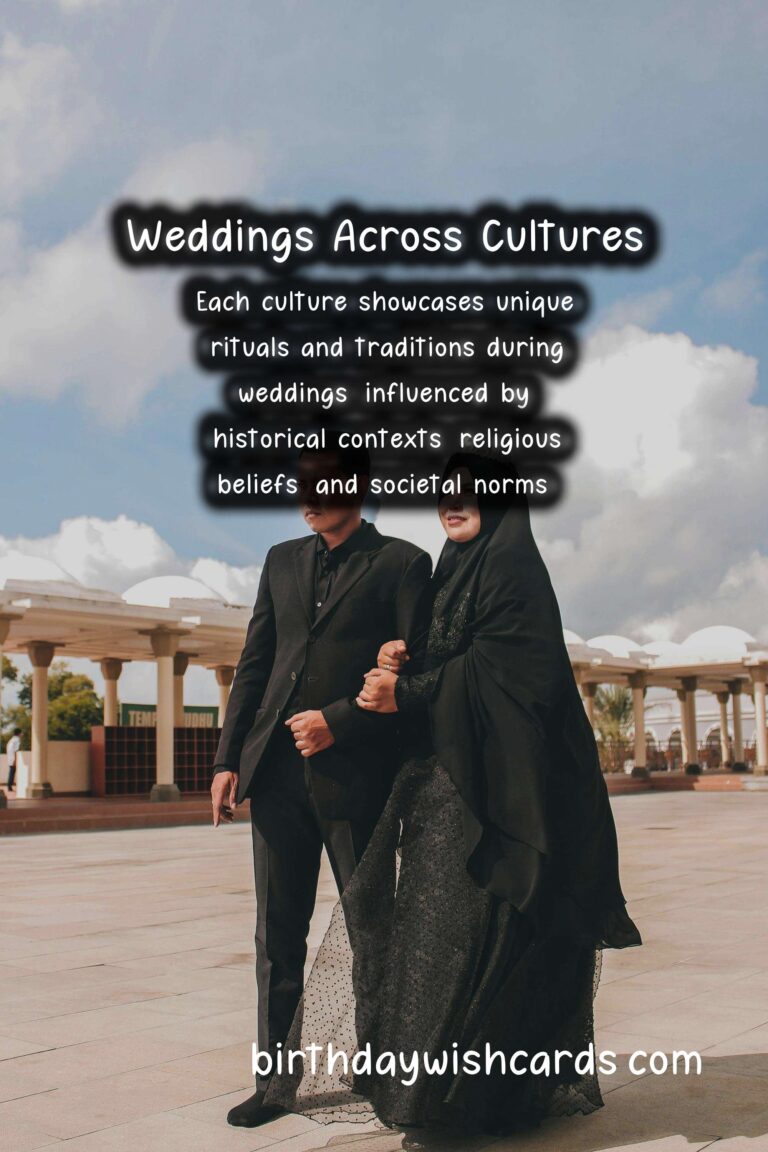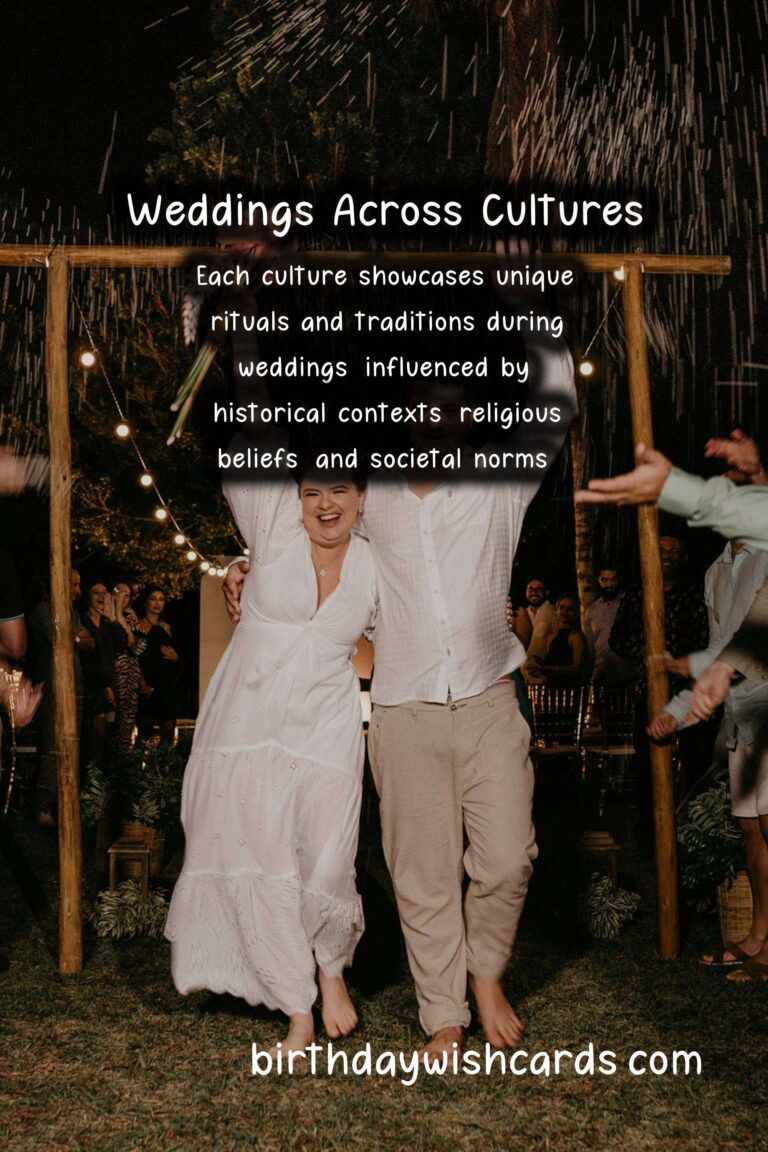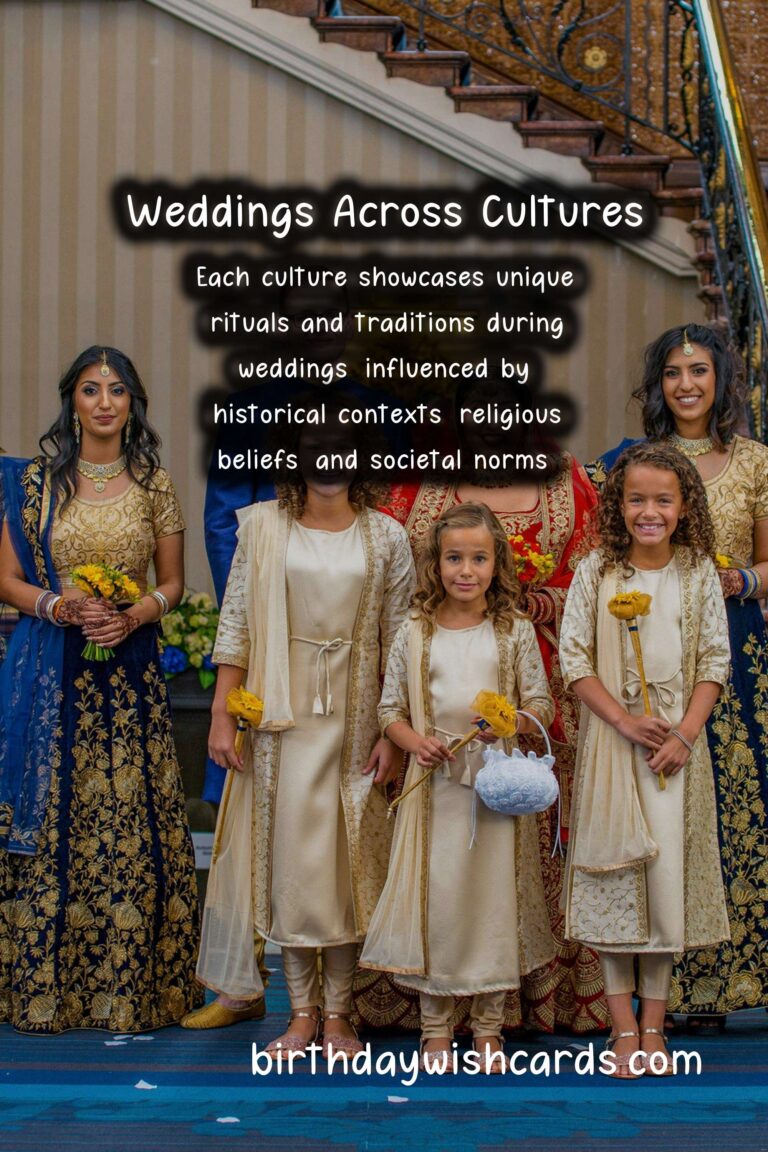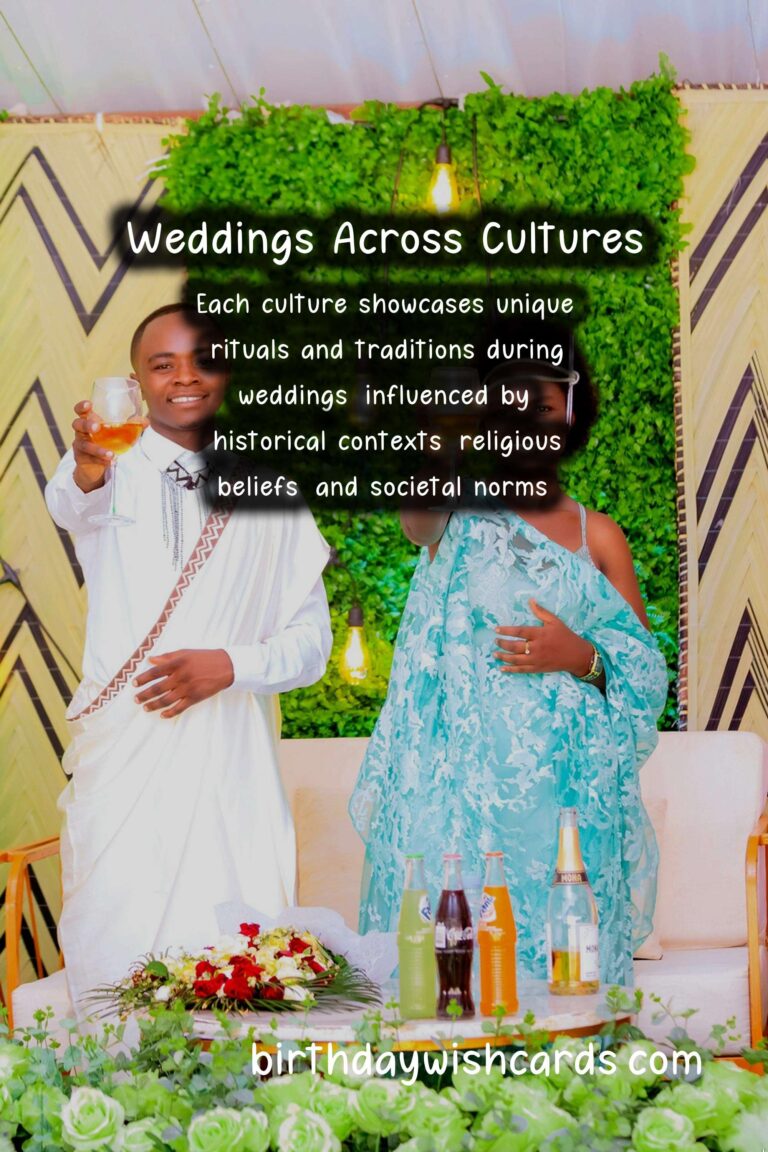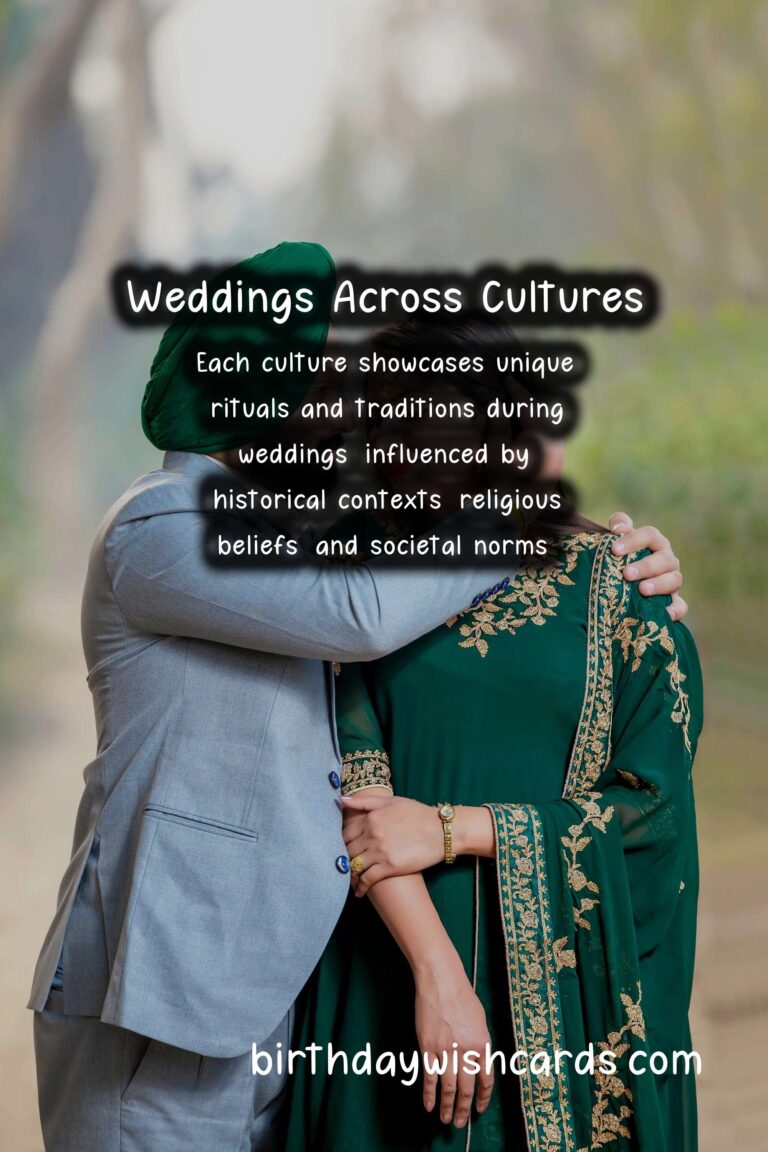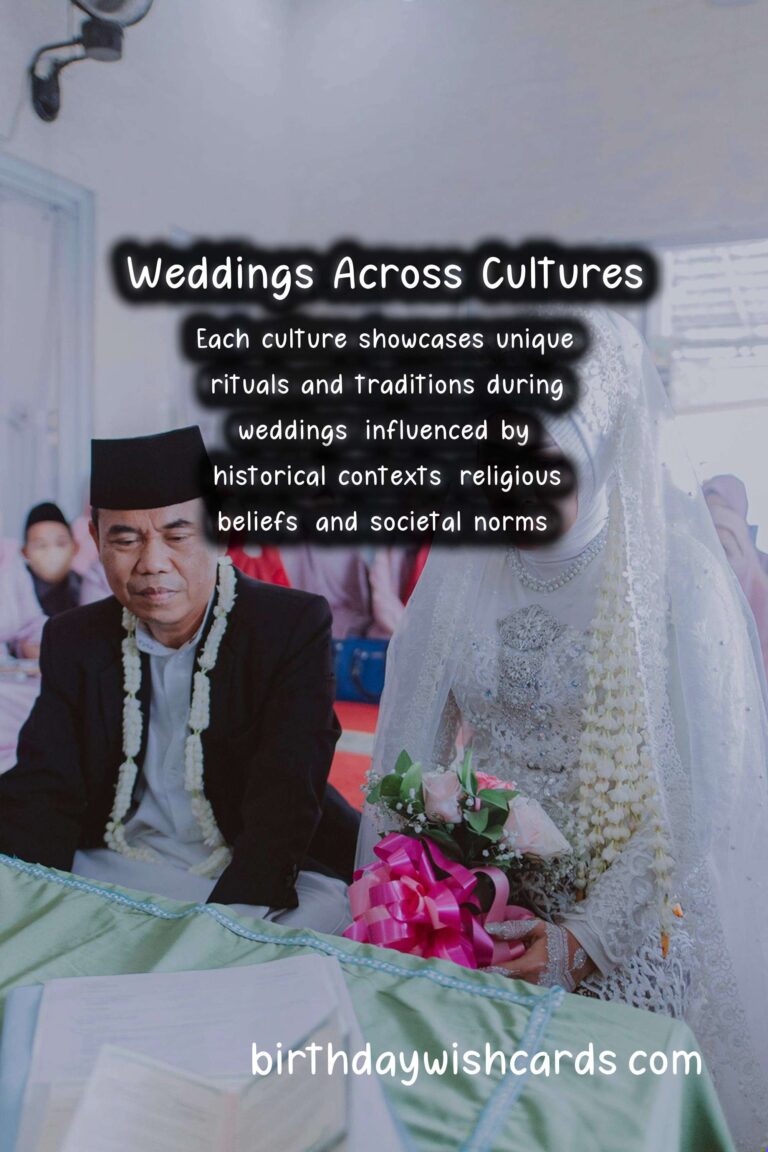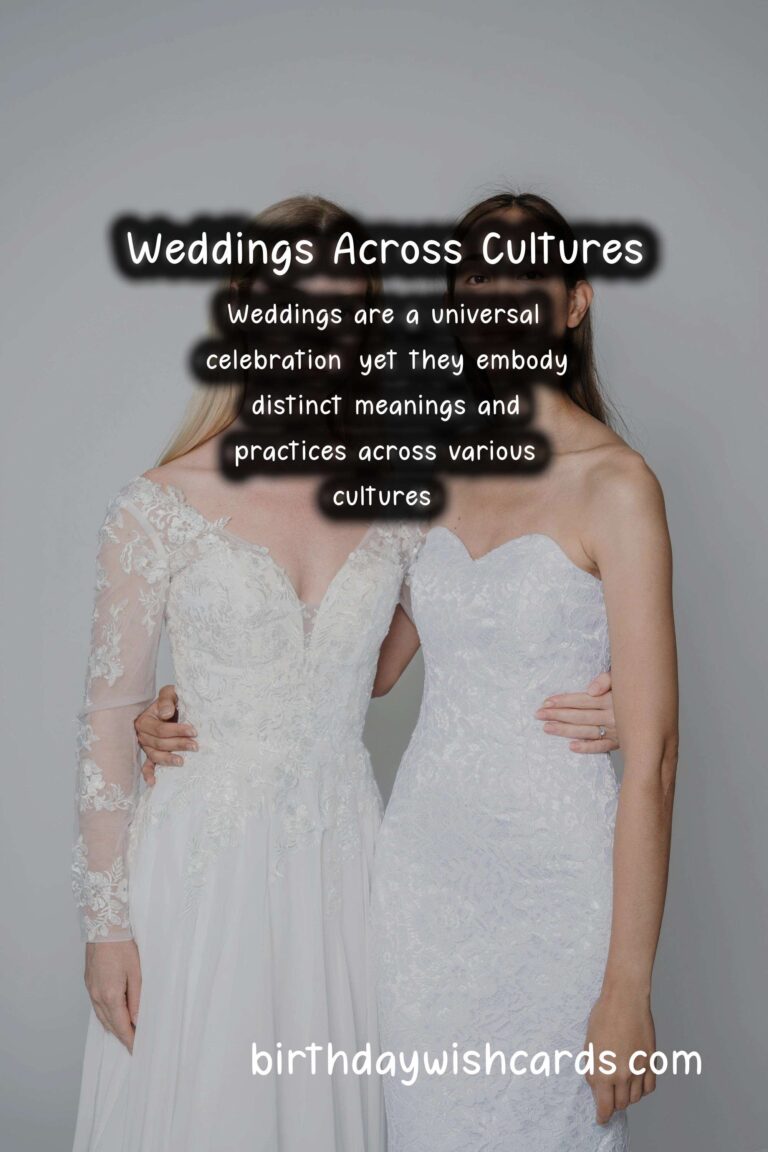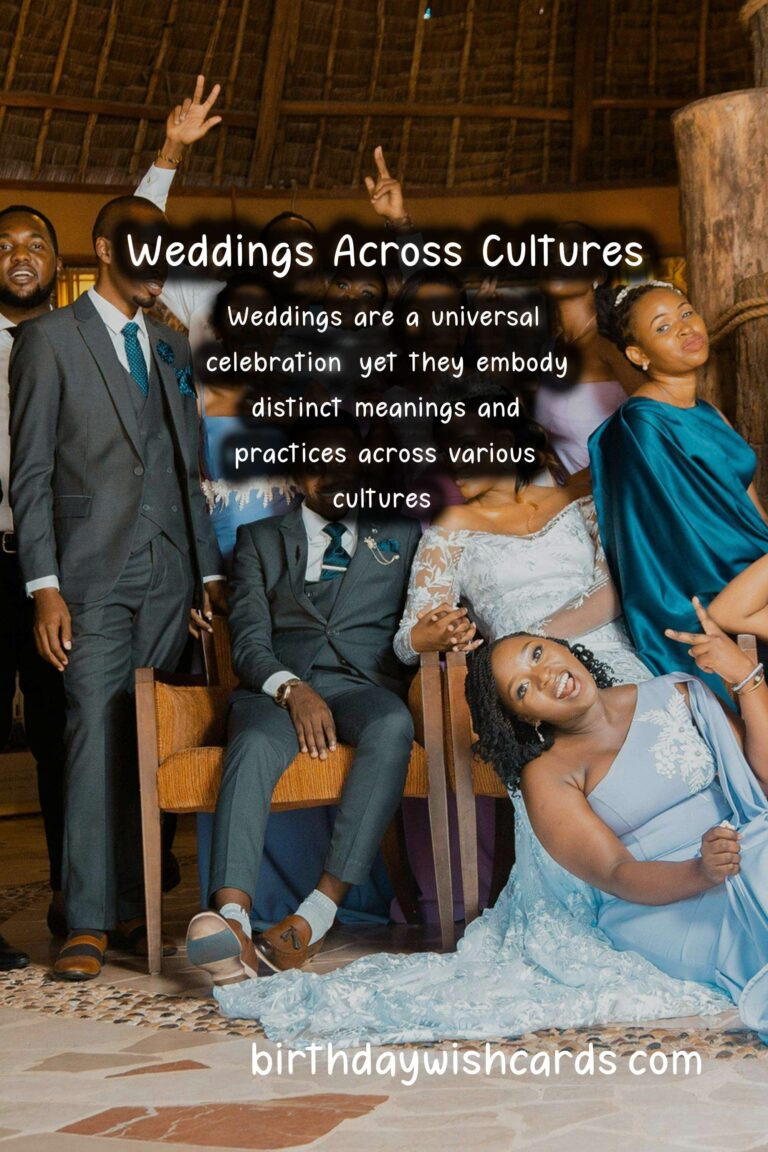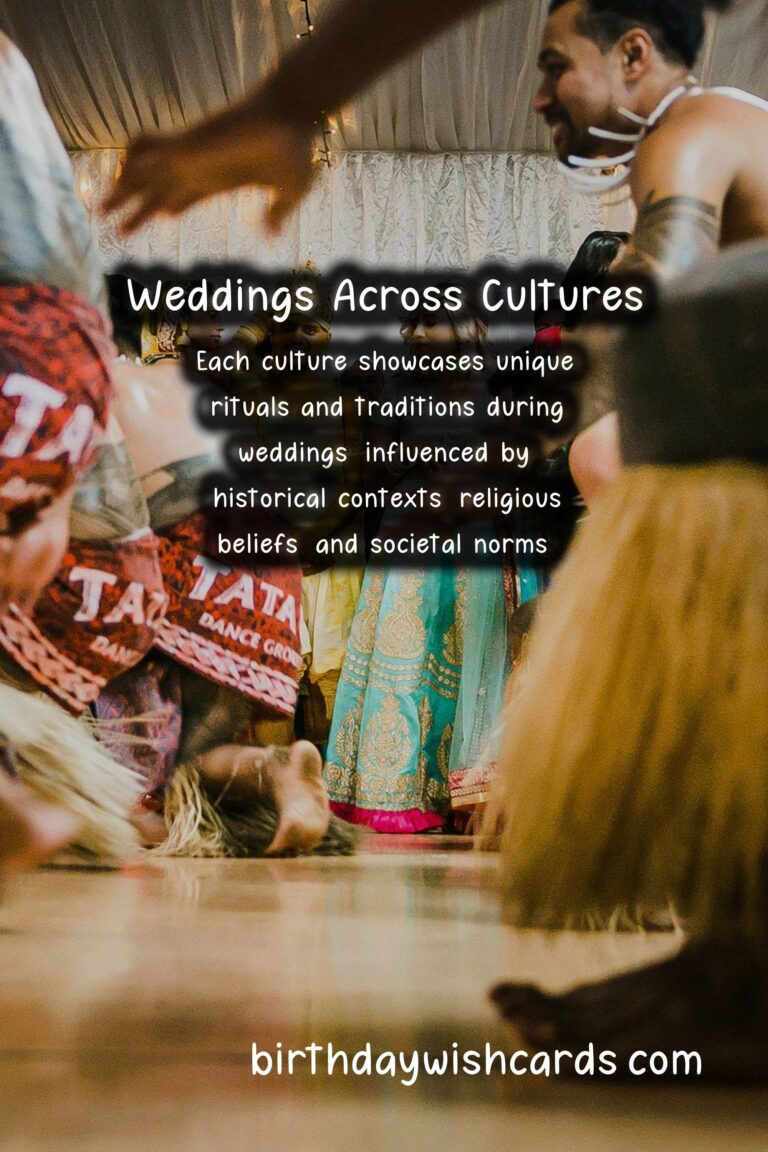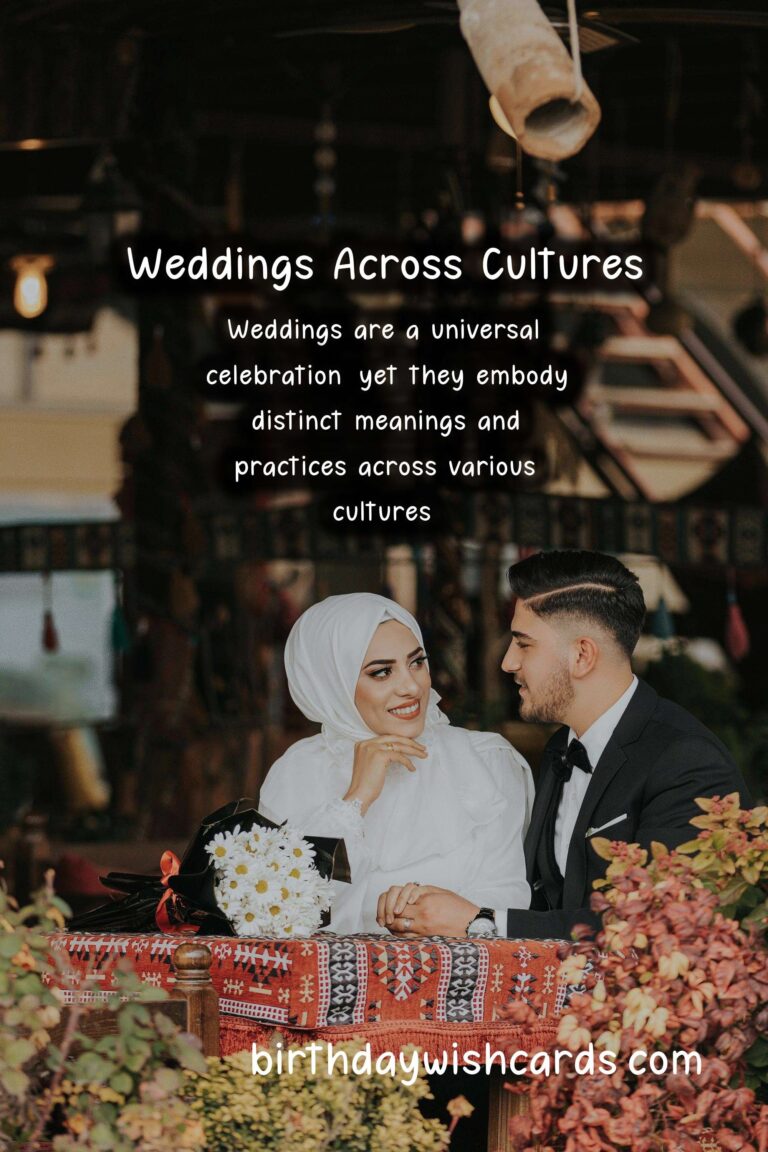
Weddings are a universal celebration, yet they embody distinct meanings and practices across various cultures. Understanding these differences not only enriches our appreciation for this significant life event but also highlights the diversity of human experience.
1. The Symbolism of Marriage
Marriage serves as a vital institution across cultures, symbolizing the union of individuals and families. It marks the beginning of a new chapter in life, where two people commit to sharing their lives, dreams, and aspirations.
2. Cultural Rituals and Traditions
Each culture showcases unique rituals and traditions during weddings, influenced by historical contexts, religious beliefs, and societal norms.
2.1 Western Weddings
In many Western cultures, weddings are often characterized by a white wedding dress for the bride, a best man to support the groom, and traditional vows taking place at a church or a scenic venue. This setup emphasizes the romantic ideal of love and partnership.
2.2 Indian Weddings
Indian weddings are renowned for their vibrant celebrations and intricate rituals. These ceremonies can last several days, filled with various pre-wedding and post-wedding ceremonies, including Mehendi (henna application) and Sangeet (musical night). Family and community play a central role in the Indian wedding experience.
2.3 African Weddings
African weddings encompass diverse practices across the continent. In many cultures, aspects such as dowry payments and communal celebrations are emphasized. Traditional attire often reflects the cultural heritage of the families involved, turning the ceremony into a vibrant display of colors and patterns.
2.4 Asian Weddings
Asian cultures often integrate familial expectations and traditions into wedding ceremonies. For example, in Chinese weddings, the significance of the color red symbolizes luck and prosperity, with elaborate tea ceremonies merging family respect and tradition.
3. The Role of Religion in Weddings
Religion often shapes wedding rituals and ceremonies, providing a spiritual framework for the union.
3.1 Christian Weddings
In Christianity, weddings are sacred ceremonies that often involve the blessing of religious leaders, emphasizing the spiritual aspect of the marital bond. Biblical readings and prayers are common during these ceremonies.
3.2 Islamic Weddings
Islamic weddings, known as Nikah, involve a formal contract between partners, often accompanied by a religious leader. The celebration is filled with community support, prayers, and a feast to honor the union.
4. The Social Importance of Weddings
Weddings serve as a unifying event for families and communities, creating bonds through shared celebrations.
4.1 Strengthening Family Ties
In many cultures, weddings are an opportunity for families to come together, strengthening kinship ties and establishing new connections. This bonding often encourages cooperation and support among family members.
4.2 Community Celebration
Weddings often serve as community events, where entire neighborhoods or villages partake in the celebrations. This fosters a sense of belonging and identity within communities.
5. Emotional Significance of Weddings
Weddings evoke a range of emotions for participants. They represent hope, joy, and the promise of a shared future.
5.1 Love and Commitment
At their core, weddings celebrate love and commitment. They act as a public declaration of a couple’s intention to dedicate their lives to each other.
5.2 Cultural Heritage
Through the lens of weddings, cultural heritage is preserved and celebrated, passing down traditions to future generations. This connection fosters pride in one’s identity.
6. Conclusion
The significance of weddings transcends mere formalities. They are vibrant expressions of love, culture, and community, adaptable to local traditions and values. Understanding the importance of weddings across different cultures helps us appreciate the beauty of diversity in societal practices.
Weddings are a universal celebration, yet they embody distinct meanings and practices across various cultures. Each culture showcases unique rituals and traditions during weddings, influenced by historical contexts, religious beliefs, and societal norms. 
